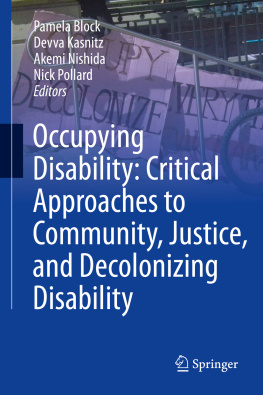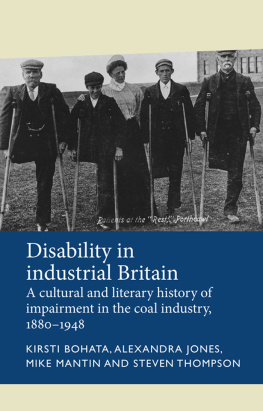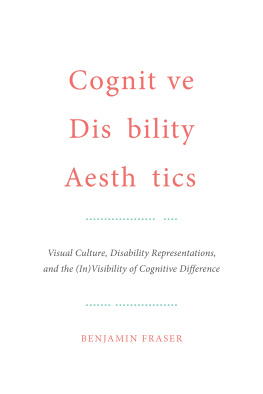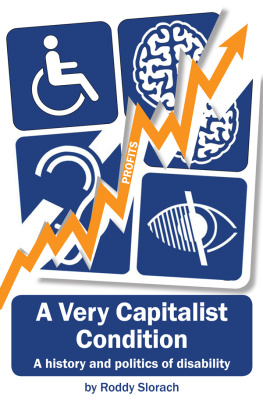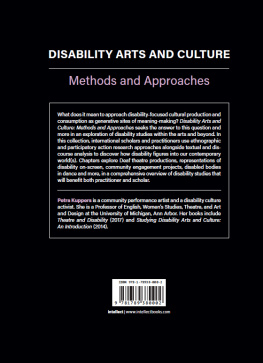Editors Note: For an introduction to Part I see Sect.
1. Occupying Disability: An Introduction
Abstract
Inspired by disability justice and the fall 2011 Disability Occupy Wall Street/Decolonize Disability movements in the US and related activism elsewhere, we are interested in politically engaged critical approaches to disability that intersect academic fieldsprincipally occupational therapy, disability studies and anthropologyas well as community organizing and the arts. The occupy international movements claim collective identities as does Occupying Disability: Critical Approaches to Community, Justice, and Decolonizing Disability . International disability movements claim disability as a collective identity rather than a medical category and recognize the political and economic dimensions of disability inequity as it intersects with other sources of inequality. Different political positions have evolved within different disability perspectives, all of which demand audience. Working with them and understanding them requires broader social critiques not usually part of most clinical educations. Some activists would not, as a matter of principle, engage clinicians because of their unfettered access to agency and operations of power. Negotiation of separatist consciousness is a stage to forming identities in many political movements. Yet we, as editors and authors strive to move beyond simple binaries: the goal is true participation, meaningful occupation, and disability justice.
1.1 Anthropology, Disability Studies, and Occupational Therapy
This book provides a discursive space where the concepts of disability, culture, and occupation meet critical theory, activism, and the creative arts. There are books that challenge occupational therapists to engage in innovative, community-based and politically relevant practice, however, there are no books that draw from anthropology and disability studies together to push the boundaries of how occupational therapy/science approaches disability. Similarly, the Occupational Therapy without Borders literature has great relevance to anthropology and disability studiesoffering (as Gelya Frank has been telling us for many years) innovative ideas about what to *do* with all this theoretical trainingbut this literature is regrettably not known to most anthropologists and disability studies scholars (Frank et al. ). Even the use of occupational science and applied anthropology nomenclature has not served to bridge contested and negatively value-loaded academic and professional boundaries that variously characterize occupational therapy as clinical and atheoretical, anthropology as an esoteric soft science, and disability studies as an interesting self-indulgence for the disabled.
Our contributing authors come from a variety of professional, academic, and activist backgrounds in order to include perspectives from theory, practice, and experiences of disability. The authors are premiere scholars and practitioners, as well as emerging theorists and activists drawn from all three fields of study and from around the globe. Our principal themes include: all the permutations of the concept of occupy; disability activism and decolonization work; marginalization and minoritization; technology; and struggle, creativity, and change. Moving well beyond traditional clinical formulations of disability, this book will engage clinicians, social scientists, activists and artists in dialogues about disability as a theoretical construct and as lived experience. In other words, the goal of this volume is to consider disability, not in terms of pathology or impairment, but as a range of unique social identities and experiences that are shaped by a full spectrum of always visiblesometimes perceivableusually invisiblediagnoses/impairments/embodied differences, connected to socio-cultural values, assumptions, and environmental barriers. We try to look at disability analytically but without confining it to any particular definition. We allow authors to define their own terms appropriate to their purpose. Terminological definitions should be tied to theoretical positions, and these in turn should be chosen not only by what intellectually satisfies, but by what supports action toward human flourishing. We probe deeper and broader than usual visible/invisible, physical/psychiatric, acute/chronic binaries.
Negotiation of separatist consciousness is a stage to forming identities in many political movements. In this evolving dialogue there may be some issues of coherence, it is not an arena where everyone speaks in the same academic language, because it is a space shaped by inequalityin access to places and platforms, in opportunities for education and expression, and in struggles for resourcing and a right to daily existence. The languages used are themselves determined by these experiences and at times there will be no consensus about appropriate terms, no clear agreement. An emergent discourse is not an easy one to follow. We have had to step back from taking the traditional academic editorial role, which in this project would have stifled the authors. It is not appropriate here to correct the way people have written in their own words what they have wanted to say, except perhaps to make some adjustments for clarity. Instead, we hope we have tried to let the conversation flow. Were excited about working with the authors to present these discussions in the same volume, and look forward to the arguments and debates that we hope it may stimulate the reader to take up. In the course of editing this book, we have had some of those debates ourselves and so feel at first hand that it is an emergent discourse. As editors and authors we strive to move beyond simple binaries: the goals are true participation, meaningful occupation, and justice for disabled people.
The concept of occupation is also intentionally a moving target in this book. Some authors will discuss occupying spaces as a form of protest or, alternatively, protesting against territorial occupations. Others will discuss occupations as framed or problematized within the fields of occupational therapy and occupational science and anthropology as engagement in meaningful activities. Others will frame it, as Friedner (Chap. ) does explicitly, in terms of occupying time and space in or out of the workplace.
There are marked tensions about just who occupies disability in the sense that countless professional jobs have been created to support disabled people across the life course in educational, rehabilitation, and service fields, while disabled people themselves struggle for employment. There are disabled occupational therapists and anthropologists, but they are pretty rare and barriers are legion: from licensing specifications or expectations of exotic fieldwork that can be used to exclude students from these fields, to the inaccessibility of national conferences that deter the participation of all disabled professionalsa new and particularly disturbing experience for those with late onset disability (Murphy ) there is a tendency for the meaningfulness of occupation to be separated from the positive meanings that many people experience in occupations that lead, for example, to sexual intimacy, fun, taking action, or, negatively, to exploitation or drudgery. As a service field, occupational therapy tends to be focused on individual experiences of meaning rather than supporting collaborative growth through interdependence, or being facilitative such as in the generation of spaces where people can experience each other and joint occupations. This latter approach is explicit in the application of disability studies and anthropology.

